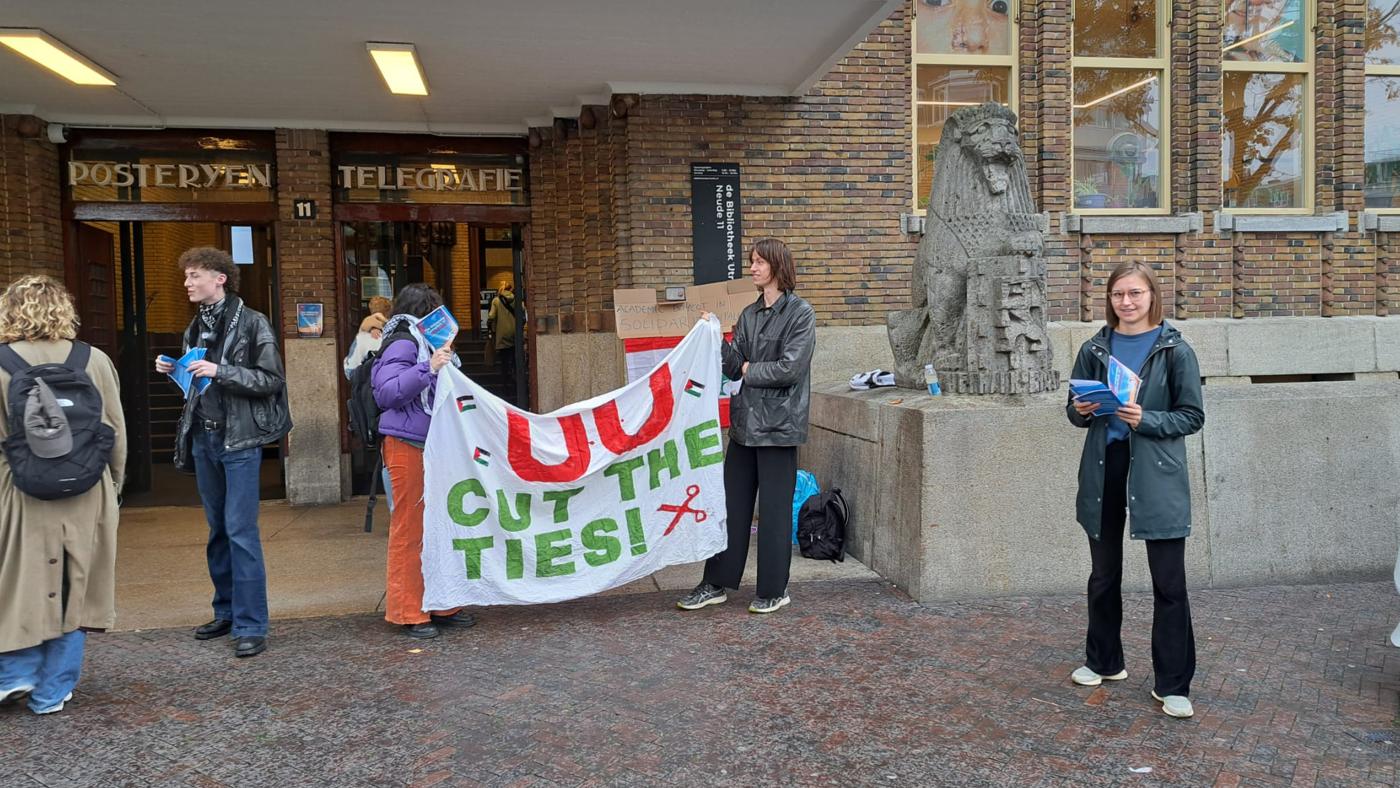Evaluation completed
It's decided: UU will not cut ties with Israel

According to the internal evaluation, none of the partnerships maintained by Utrecht University with Israeli institutions produces scientific knowledge that could be applied militarily or would be relevant to the Israeli defence industry. In addition, the chance of ongoing research projects leading to a deterioration of human rights is “minimal”.
Last summer, UU announced that most collaborations could continue, but some projects needed further analysis. The university asked the government's Knowledge Security Desk for advice. Now, the remaining projects have received the green light to go on.
The Executive Board had promised to make all its partnerships with Israeli institutions public and re-evaluate them following a series of pro-Palestine demonstrations and occupations earlier this year.
Evaluation
The evaluation was carried out by the faculties and the university's Knowledge Security Advisory Team, which investigated whether the scientific knowledge resulting from the partnerships could be improperly applied to military purposes or contribute to the deterioration of human rights in the region. In addition, UU is working on a framework for the ethical assessment of its partnerships, which is expected to be discussed by the University Council in November or December. All new partnerships will be assessed according to this framework – it will apply not only to partnerships with institutions in conflict-stricken areas but also to collaborations with the fossil fuel industry or situations involving possible violations of human rights.
Student party Vuur would like the framework to be applied not only to new partnerships but to existing collaborations with Israel as well. "Collaborations approved according to the Knowledge Security framework will not be re-assessed according to the new framework. I would like to request the Executive Board to do that, or at least do it with doubtful cases," said Saban Caliskan, a student member of the Council representing Vuur, in a committee meeting held on Monday.
The rector would rather discuss the new assessment framework with the University Council first. However, he does not want to re-examine the partnerships with Israel that have been approved in the current evaluation once the new framework is ready. He only wants to do that if there is evidence that something is wrong with a certain partnership.
“The International Court of Justice is investigating whether genocide is taking place in Palestine. If they conclude that it is, would that be considered a new circumstance?”, asked Caliskan. “The International Court of Justice has already emitted an initial advisory opinion on the occupied territories, saying that cooperating with that is not allowed,” Kummeling replied. “Therefore, we will not accept any research or education carried out in the occupied territories. If this happens, we will raise the issue with the partner in question.”
Exchange with Israeli universities
In addition to research collaborations with Israeli organisations, UU also has exchange contracts with Israeli universities. Negative travel advice has been in effect for the area since the conflict in Gaza broke out, so Israeli universities are no longer available as an exchange destination. Israeli students can still come to UU, but according to a spokesperson, this rarely happens.
"We used to have exchange contracts with three universities, but two of those contracts have expired, namely the Hebrew University and Reichman University. These institutions were therefore taken offline and no longer appear as exchange destinations on UU's website," UU writes in a press release. The exchange programme with the University of Haifa will not be opened again in the 2025-2026 academic year due to the negative travel advice.
The university writes that it is cautious about entering into new collaborations with Israeli organisations, even though it has a country-neutral policy. "This means, among other things, that no countries can be excluded in advance, except countries or institutions against which sanctions are in force."